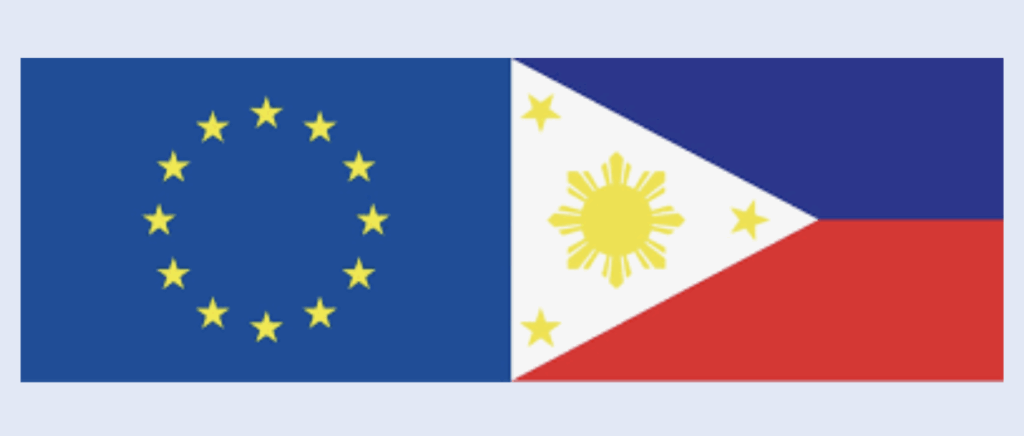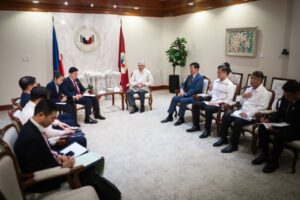
[Full press release courtesy of European External Action Service (EEAS) official website]
The EU and the Philippines convened the Fifth Subcommittee Meeting on Good Governance, Rule of Law, and Human Rights under the EU-Philippines Partnership and Cooperation Agreement (PCA) on 6 October in Brussels.
The Meeting was co-chaired by Department of Foreign Affairs Assistant Secretary for European Affairs of the Philippines, Deena Joy D. Amatong, and Acting Managing Director for Asia and the Pacific Paola Pampaloni of the European External Action Service (EEAS). It was attended by EU Member States and Philippine government agencies.
The EU and the Philippines reaffirmed their shared commitment to human rights, the rule of law, due process, and good governance. They condemned reported violations of human rights and international humanitarian law worldwide. Amid rising geopolitical tensions, both sides emphasised the shared responsibility to uphold and promote the principles of the UN Charter.
The EU and the Philippines acknowledged their common efforts to fight corruption. The EU welcomed the Philippines’ efforts to strengthen transparency, accountability and good governance. The two sides acknowledged that addressing corruption is not only key to enhancing public trust but also critical to attracting foreign and domestic investment, ensuring efficient public services and supporting inclusive development.
The Philippines underscored its continued adherence to international human rights standards and its openness to constructive engagements with international bodies of the UN. The Philippines informed the EU on their upcoming mid-term report, on the progress made in implementing the recommendations from the 4th cycle of the Universal Periodic Review. The EU encouraged the Philippines to continue extending invitations to UN Special Procedures Mandate Holders. The two sides recalled that the Philippines will take on the Chairship of ASEAN in 2026 and restated their mutual commitments to strengthen cooperation between the EU and the ASEAN Inter-Governmental Commission on Human Rights (AICHR).
The Philippines presented its 4th National Action Plan on Human Rights as well as the activities carried out by the Special Committee on Human Rights Coordination (SCHRC) to sustain the gains from the United Nations Joint Programme for Human Rights (UNJP). Both sides agreed on the importance of ensuring the involvement of the Philippine Commission on Human Rights and of non-government organisations and civil society groups in the implementation of the Action Plan and the work of the Committee. The EU supports and encourages the Philippines in efforts to legislate the adoption of the Charter on the National Commission for Human Rights.
The EU and the Philippines underscored their strong condemnation of alleged extra-judicial killings and underscored the need to provide remedies for victims, fight impunity and hold perpetrators accountable. The Philippines presented progress made in ongoing police and justice reforms, jail decongestion and highlighted major steps towards the establishment of an independent National Forensic Institute. The EU expressed appreciation that pending the passage of a law, mandatory autopsies are being conducted for cases involving death under suspicious circumstances.
The EU and the Philippines committed to protect human rights defenders against violence, harassment, and red-tagging, and to provide an enabling environment for civil society. They agreed that anti-terrorism legislation should not be used to restrict legitimate activities of civil society, human rights defenders and journalists, and must ensure justice and protection for victims of terrorism.
The EU and the Philippines discussed the issue of enforced disappearances and the need to swiftly investigate all cases. The EU acknowledged the report on the decline of alleged cases of enforced disappearances. The Philippines shared that it continues to implement a rapid intervention mechanism with the training and deployment of prosecutors nationwide under the AO35 programme. The Philippines took note of the EU’s recommendation to sign, ratify and implement even with reservations the International Convention for the Protection of All Persons from Enforced Disappearances.
The EU and the Philippines acknowledged the importance of freedom of opinion and expression, media and information pluralism, both online and offline, and digital rights. The EU and the Philippines committed to taking steps to respect, protect and promote these rights, ensuring that media practitioners can operate in a safe and supportive environment. The Philippines discussed its efforts to review and adapt libel and cyber-libel laws. The EU and the Philippines deplored the killings of journalists. The Philippines discussed its actions taken on the reported deaths of Erwin “Boy Pana” Segovia, Juan “Johnny” Dayang and Ali Macalintal. The Philippines provided updates on the case of Maria Ressa. The Philippines shared that it continues to ensure freedom of expression through its rapid intervention mechanism mandated under AO1 and AO35 using an inter-agency approach.
The EU and the Philippines agreed on the importance of a human rights-based approach to combating illegal drug use. Both sides agreed on the need to regularly review the effectiveness of drug policies and ensure their alignment with international human rights standards. The Philippines shared information about work to adopt a policy on a public health and human rights based approach to addressing the drug issue. The Philippines provided updates on the ongoing court case following the murder of Spanish citizen Diego Bello.
The EU and the Philippines agreed on the importance of ensuring that businesses respect human rights, including when their activities are in sensitive sectors such as extractive industries and the digital sector. The EU presented its measures to promote business and human rights, including legislation, and encouraged the Philippines to adopt a National Action Plan on Business and Human rights, guaranteeing the meaningful involvement of local communities and indigenous peoples in projects affecting them.
The EU and the Philippines discussed ongoing efforts to improve access to justice for all through the “Enabling Justice and Rule of Law in the Philippines” programme. This programme aims to strengthen the justice sector, bolster effective justice institutions, ensure access to justice for vulnerable groups, address any possible misuse of law, reduce prison congestion, institutionalise restorative practices, and promote an evidence-based approach to justice. Both sides stressed the need to ensure fair trial and detention conditions and the reintegration in society after serving sentences. Both sides will continue to collaborate to address the challenges in the social reintegration of persons coming out of jail and prison, and other criminal justice clients to reduce recidivism and enhance public safety.
Both sides recognise the impactful contributions of international partners and civil society organisations in the promotion of good governance, rule of law, human rights, and seek their continued cooperative interventions.
The EU and the Philippines reiterated their continuing compliance with the 2nd Optional Protocol to the International Covenant on Civil and Political Rights on the abolition of the death penalty. The EU encouraged the Philippines to accelerate and finalise work to establish a national preventive mechanism against torture.
The EU and the Philippines discussed the rights of women, children, persons with disabilities, migrants and refugees, indigenous peoples and the LGBTIQ+ community. Both sides exchanged views on the adoption of legislation on anti-discrimination and access to health and other social support services.
The EU and the Philippines reaffirmed their shared commitment to protect children online and offline, grounded in a victim-centered, child-rights–based approach and the rule of law. Both sides agreed to deepen practical cooperation to prevent, detect, investigate, and prosecute online sexual abuse or exploitation of children, through timely information-sharing, capacity-building, and closer links among justice, law enforcement, and social protection actors.
The EU and the Philippines committed to strengthen their work to promote and protect freedoms of association and assembly, decent work and fundamental labour rights including the protection of trade unionists and workers, also in the framework of the implementation of the General Scheme of Preferences (GSP+) and the ongoing EU-Philippines FTA negotiations. The EU and the Philippines stressed the importance of combatting human trafficking, including in the context of scam centres. The Philippines also highlighted the initiatives to protect the human rights of seafarers.
The EU and the Philippines also addressed other key issues of mutual concern, including climate change and environmental sustainability and the right to development. The Philippines presented its initiatives on the right to enjoy the benefits of scientific progress and its application.
The next Subcommittee Meeting is set to take place in Manila in 2026.


